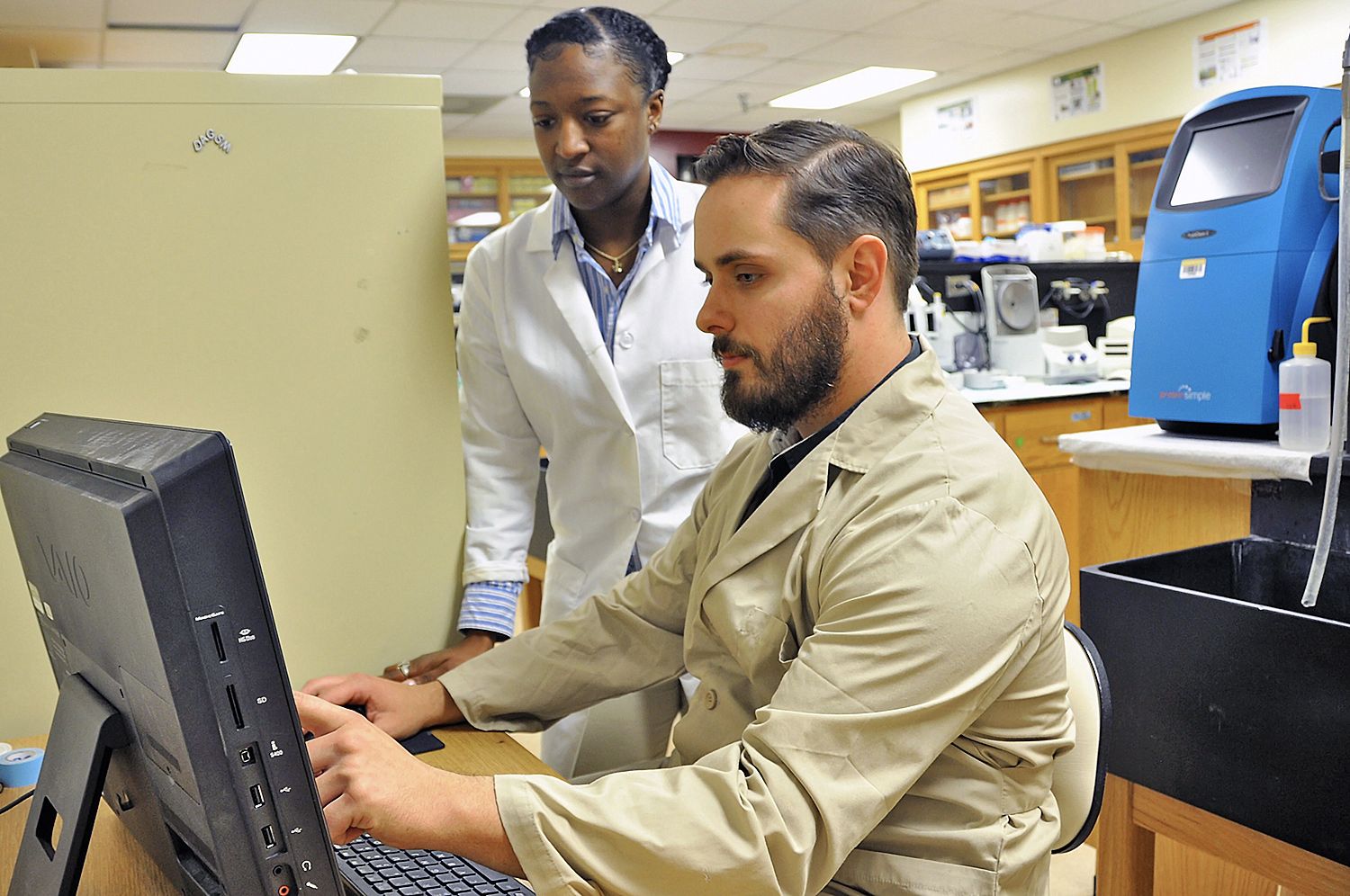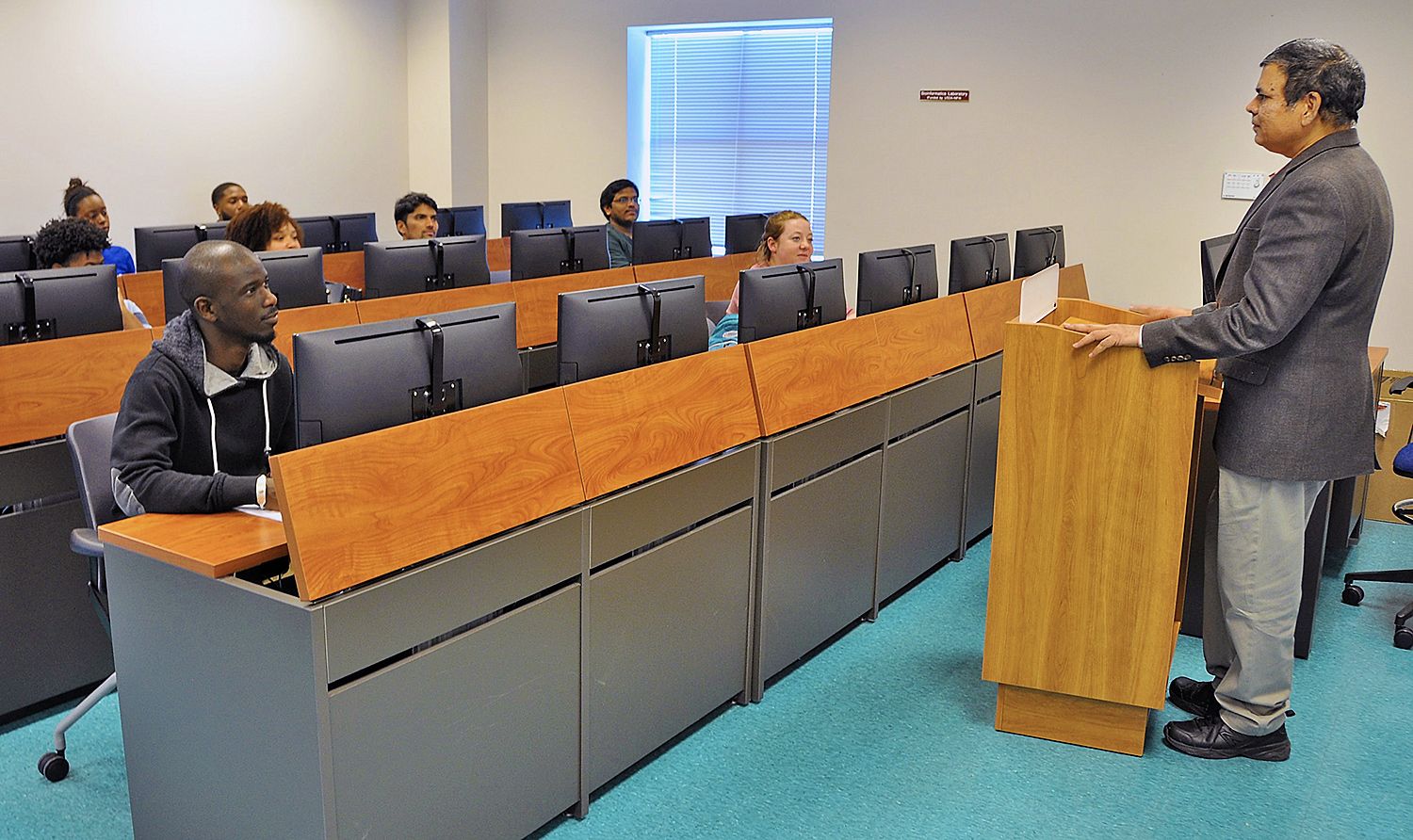Bioinformatics, an evolving interdisciplinary science, is giving Fort Valley State University agricultural students the tools they need to potentially treat diseases and create a sustainable food system.
Using software that organizes and analyzes large amounts of biological data like DNA and proteins, undergraduate and graduate students are receiving hands-on training in a newly completed laboratory.
Dr. Ramana Gosukonda, a FVSU agricultural sciences professor, is the first at the Historically Black University to teach bioinformatics through the Principles of Biotechnology course.
“There is no other way for students to continue professionally without knowing bioinformatics because it is highly integrated within agricultural research,” he said.
Learning to code using bioinformatics, biotechnology graduate students Zandria Chambers and Matthew Durst-Scarlett, apply those skills to their agricultural research projects.

Chambers uses bioinformatics to depict her research on hydrophobic aerogels. The 26-year-old from Albany, Georgia, is attempting to create a reusable green product by using cellulose, which comes from a residual waste. “Bioinformatics connects all of the dots statistically,” she said. “We use these programs to depict the problem and solution in a 3D way.”
Durst-Scarlett applies bioinformatics to his research on pest management in grain storage. The 27-year-old from Warner Robins, Georgia, is investigating wasps to control the problem. “In biology, we tend to deal with very large sets of data. With bioinformatics, we can organize and manipulate that data so we can see it in different ways, store it and then share it with other scientists to collaborate on things,” he said.
Similar to a police detective using a database to check for criminal background information, Gosukonda explained that biological databases serve as a repository of information for scientists and students. “As a result, any biological problem they want to solve, they have to use these databases and other bioinformatics tools. Without the use of these tools, biological research cannot progress beyond a certain point,” he noted.
The agricultural sciences professor said the main component in bioinformatics is the research process. He creates and presents simulated modules to students in the laboratory located in the Georgia Small Ruminant Research and Extension Center on campus. These modules include students exploring how to build an evolutionary tree and finding a drug to treat a disease. “They can convert DNA into a protein and make it into a 3D structure,” Gosukonda said.
In addition to providing students with hands-on training, he looks forward to expanding the bioinformatics curriculum with additional modules and training more faculty to teach the courses.
“Bioinformatics is so dynamic. What I learn today may not be the same in two years,” he said. “My goal is to make bioinformatics a major or minor at FVSU. Currently, none of the HBCUs offer it as a major or concentration for undergraduate students.”
Gosukonda encourages students to consider a career in bioinformatics. “Anyone who knows a little about programming and has an understanding of biological problems can easily get a decent job,” he advised.
The U.S. Department of Agriculture’s (USDA) National Institute of Food and Agriculture (NIFA) awarded Gosukonda a $149,999 1890 Capacity Building Grant to create bioinformatics courses and a laboratory for hands-on training.
Since receiving the grant four years ago, Gosukonda has trained more than 60 students. The recently finished bioinformatics laboratory now contains 19 computers, audiovisual equipment, panels, speakers, WiFi and electric computer desks.
For more information about bioinformatics, contact Gosukonda at (478) 925-6836 or gosukonr@fvsu.edu.

